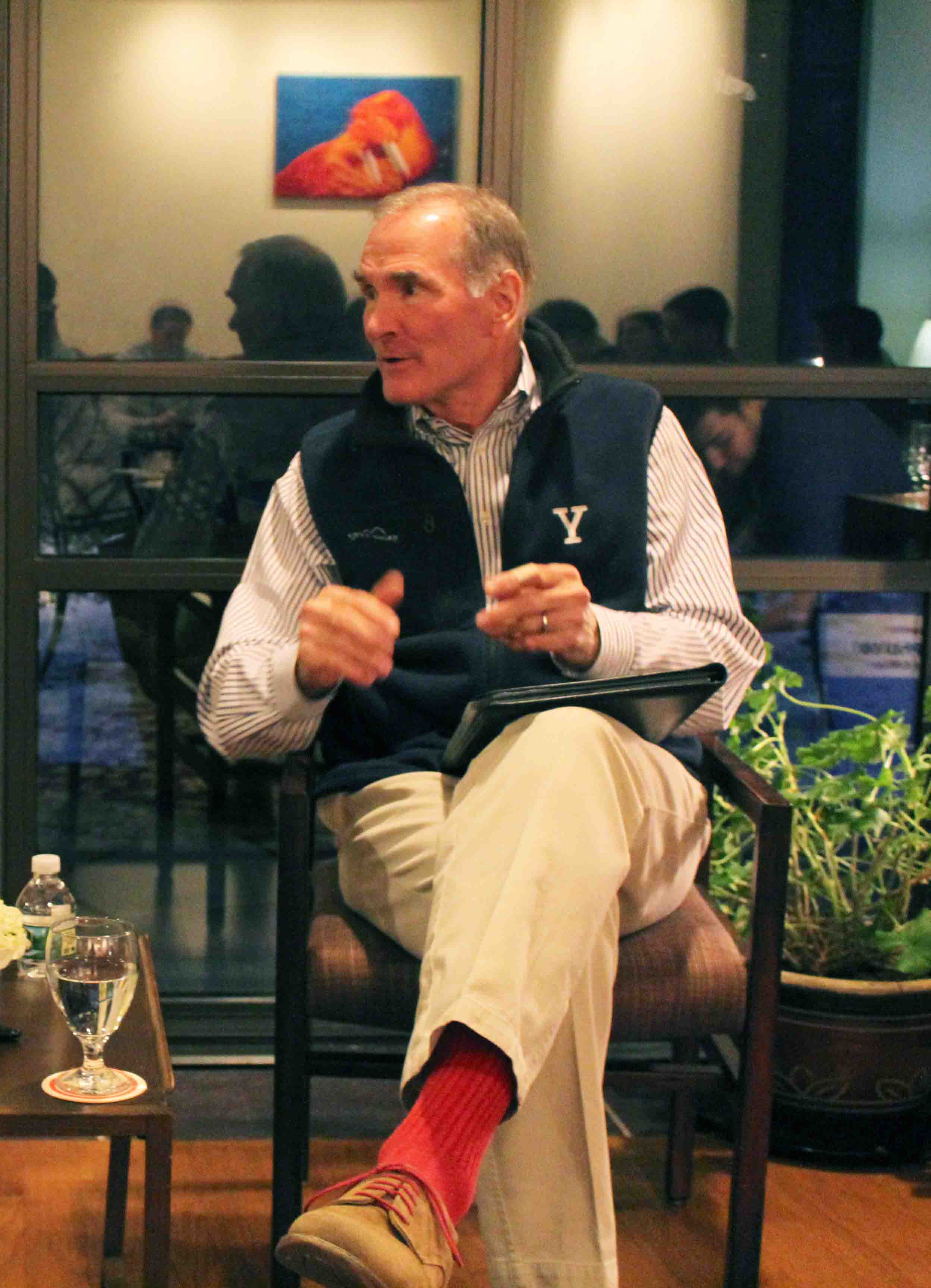
Yale will not invest in any retail outlet that sells assault weapons to the general public, the University announced in a statement Tuesday.
The statement arrives just in time for back-to-school season, as students return to the classroom and school administrators grapple with safety in an era of school shootings. After the February shooting at Marjory Stoneman Douglas High School in Parkland, Florida, the Corporation’s advisory body for investment policy began discussing the ethics of investing the endowment in assault weapon retailers, according to Advisory Committee on Investor Responsibility chair Jonathan Macey LAW ‘82. The new policy does not address assault weapon manufacturers.
It’s not clear whether Yale had any of its endowment invested in assault weapon retailers before Tuesday’s announcement. A University spokesman did not respond to inquiries about endowment exposure to assault weapon retailers, and Macey speculated that the endowment was not exposed to such retailers.
The ACIR, a committee comprised of alumni, faculty, staff and students, advises the Yale Corporation Committee on Investor Responsibility in making recommendations to the Corporation on policy matters related to ethical investing. The group’s recommendations are guided by “The Ethical Investor” a manual written by Yale students and faculty members in 1972 that calls for Yale to divest from companies that cause “grave social injury.”
For years, student groups like Fossil Free Yale have lobbied the administration to divest from Exxon and other companies involved in the fossil-fuel industry. As of June, per guidelines drafted by the ACIR and endorsed by the CCIR, Yale will support shareholder resolutions — a proposal from shareholders to be voted on at company meetings — that improve the “corporate social responsibility” of private prisons, including those that promote efforts to reduce recidivism or prisoner rape and sexual abuse. But Yale has not divested from a company due to a change in University policy since 2006, when it divested from seven oil and gas companies operating in Sudan in response to the Darfur genocide.
The committee began researching assault rifle retailers after a request from Dan DiMaio, a professor at the School of Medicine and deputy director of the Yale Cancer Center. After DiMaio learned that a former graduate student had attended Marjory Stoneman Douglas High School, he emailed University President Peter Salovey and Provost Ben Polak, asking that Yale divest from companies that manufacture or sell military style-assault rifles. Polak responded to DiMaio, looping in Chief Investment Officer David Swensen, General Counsel Alexander Dreier and Macey, DiMaio said.
“I was just thinking, ‘what can we do if our political processes aren’t going to solve this,’ and I thought Yale should explore their investments in this area,” DiMaio said. “I was disappointed to learn that I was the only person who suggested it.”
The ACIR considered DiMaio’s request and determined that “retailers supplying assault weapons to the general public cause grave social harm,” a conclusion supported by the Yale Corporation Committee on Investor Responsibility.
The committee quickly reached a consensus, Macey said, adding that this year the ACIR may continue to consider whether it is ethical for Yale to invest in gun manufacturers.
Ben Levin ’20, a leader of FFY, said he was glad to see Yale make a statement on one of today’s most pressing political issues. But he added that he was disappointed that the University has not applied the same logic to its fossil fuel investments.
“While I’m gratified that the ACIR acted on this issue at the urging of a single faculty member, it makes me wonder why they won’t listen to the vast majority of the student body and recommend fossil fuel divestment,” Levin wrote in a statement to the News. “We need an administration that is accountable to students and to our precious future.”
Ananya Kumar-Banerjee ’21, communications director for the Yale Dems and a vocal advocate for gun control, planned a gun violence teach-in last April and plans to establish a “students demand action” club modeled after the Everytown for Gun Safety movement on campus this fall.
But her efforts to promote gun safety have focused on gun violence and police brutality in New Haven and have not involved discussions of Yale’s investment in retailers of assault weapons, she said.
Kumar-Banerjee added that Yale’s commitment to not invest in assault weapon retailers was unexpected, given that “there have been so many issues that have been given more time and been talked about more” in terms of Yale’s endowment, particularly undergraduates’ calls for Yale to divest from private prisons.
“I would not be surprised if this kind of performative pulling out of something that is seen as unethical at this point is just something that’s being done by the administration to deflect from a lot of the heat its been given in terms of the endowment,” Kumar-Banerjee said. “It’s fantastic, it’s great that we’re doing this, but it’s not enough. There’s lot more we have to do to be responsible people and a responsible institution, as the second richest endowment in the entire country.”
Yale’s endowment totaled $27.2 billion, as of June 30, 2017.
Hailey Fuchs | hailey.fuchs@yale.edu
Adelaide Feibel | adelaide.feibel@yale.edu







